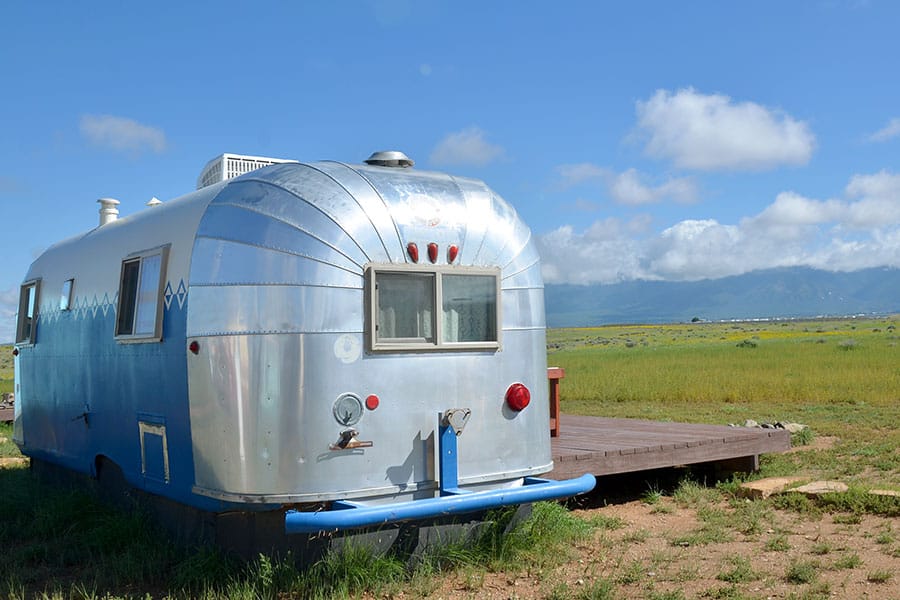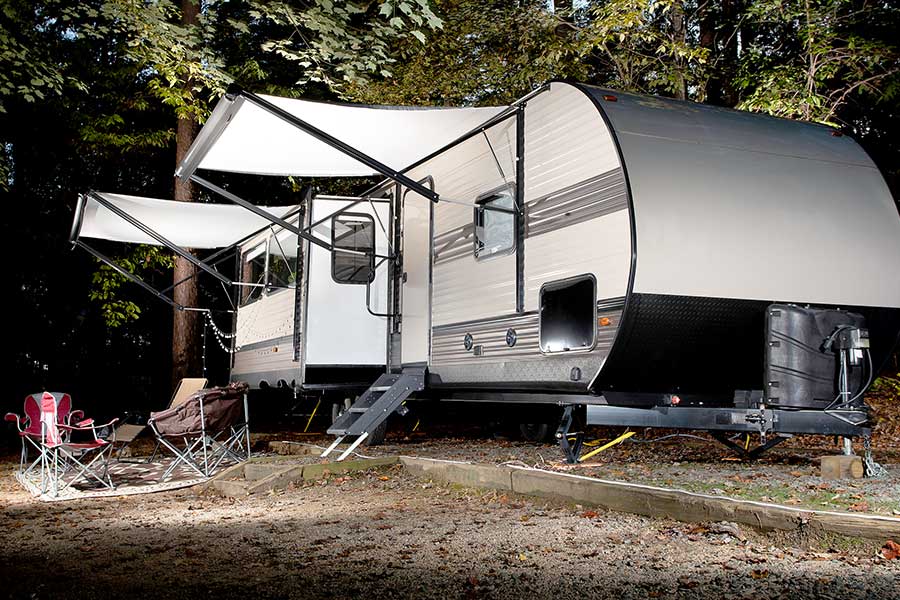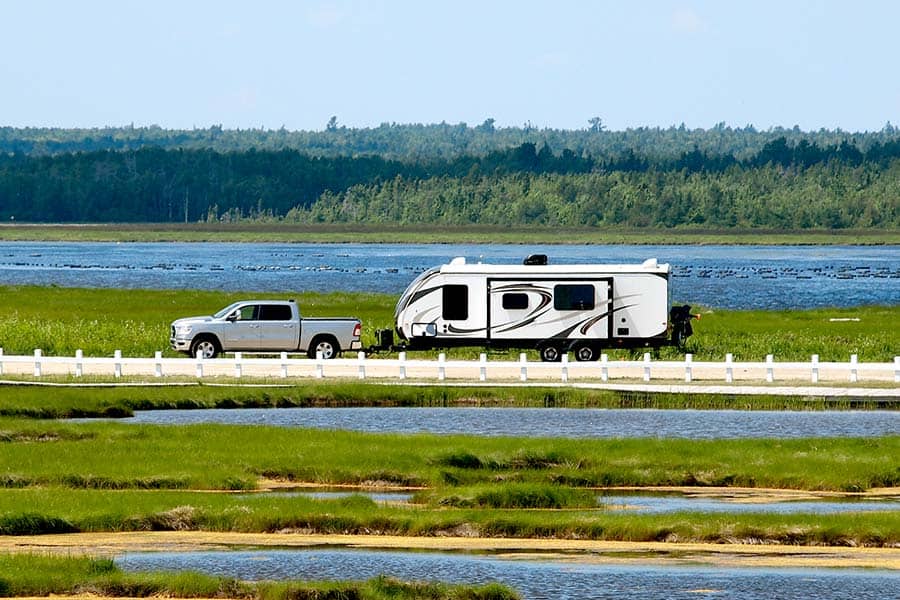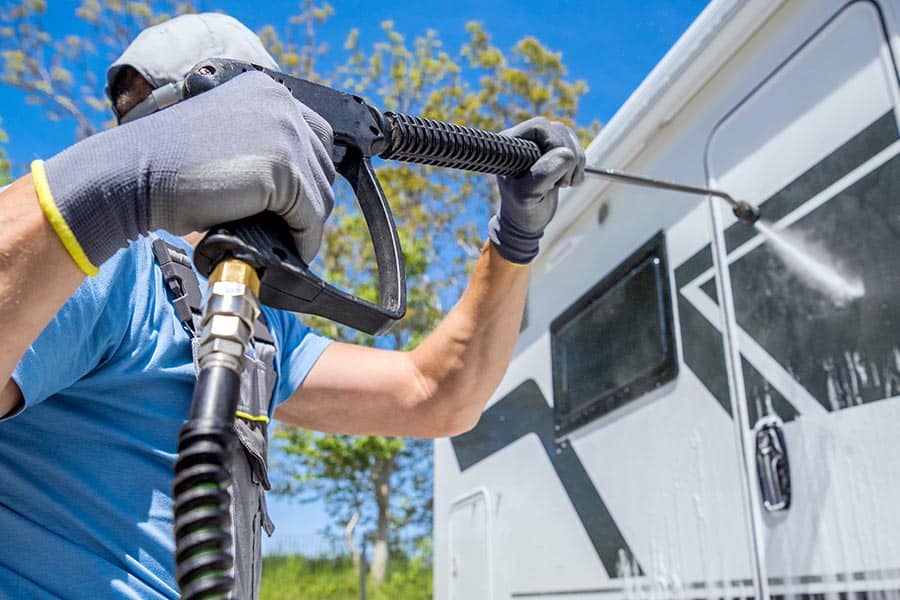
Travel trailers are a popular method of camping for those who enjoy exploring the outdoors, traveling to new places, and embracing new experiences. However, like any automobile or recreational vehicle, they have a limited lifespan.
The question of how long a travel trailer lasts is important for anyone considering investing in one. In this post, we’ll explore the factors that contribute to their life expectancy so that you can make an informed decision regarding your purchase. So, whether you’re a seasoned camper or just starting, let’s discover the answer to this essential question.
Understanding the Lifespan of Travel Trailers
Investing in a camper requires a significant financial commitment. Therefore it’s important to make sure you’re getting the most out of your investment.
Let’s take a closer look at some factors that can affect the longevity of a trailer.
1. Quality of the Trailer
The quality of a travel trailer is undoubtedly one of the most important factors affecting its overall longevity. Higher-quality trailers are often constructed with better materials and techniques, resulting in a longer lifespan.
In addition, such trailers are made to withstand rugged conditions and cope with the harsh and challenging terrains of outdoor camping. To ensure that you get a good quality one, it’s essential to do your research and purchase from reputable manufacturers who specialize in building quality, long-lasting trailers.
In contrast, lower-quality travel trailers tend to be manufactured using cheaper and inferior quality materials, rendering them more susceptible to wear and tear. As a result, such trailers tend to have a shorter lifespan, making them less cost-effective in the long run.
Thus, investing in a high quality, durable trailer may be pricier upfront; however, it’s likely to pay dividends down the road.

2. Maintenance
Proper maintenance is the cornerstone of extending the life of your travel trailer. Regular maintenance ensures that the trailer operates safely, reliably, and efficiently. In addition, regular cleaning, inspection, and timely repairs can help prevent damage and add to the trailer’s longevity.
Inspecting the trailer’s electrical, water, and plumbing systems and appliances, as well as tire rotations and checking window and door seals and vents, are essential maintenance practices.
Thus, keeping a regular maintenance schedule and adhering to the manufacturer’s guidelines are necessary to keep the trailer in the best possible condition to extend its expected lifetime.
Neglecting its upkeep can lead to minor problems escalating into significant issues, which could eventually damage the trailer and shorten its overall longevity.
Other Posts of Interest
- Why Do Campgrounds Charge So Much? 11 Reasons Why
- 17 Tips to Avoid Ticks While Camping: What You Need to Know
- How Loud Can A Generator Be In A National Park?
- What Amenities Can I Expect At A Campground? (The Top 10)
3. Frequency of Use
Another factor in determining longevity is the frequency of its use. The more often a trailer is used, the more wear and tear it will likely face, potentially resulting in components failing faster. On the contrary, trailers that experience less use may have a longer lifespan, primarily because of reduced wear and tear.

4. Environmental Factors
Environmental aspects are also critical factors that affect how long they last. For example, the surrounding environment can significantly impact the lifespan of a travel trailer due to exposure to extreme temperatures and other elements that can damage its structure and components.
For instance, winter weather can cause the freezing of pipes and tanks if not properly winterized. Similarly, sun exposure can cause fading of colors as well as potential warping in weakened areas such as windows and door frames. Humid or damp storage conditions could also lead to mold and mildew growth, causing damage to the trailer over time.
Additionally, store it under a covered space or in a building when not in use to protect against the elements, such as snow, rain, and extreme temperatures, which can have an adverse effect if exposed over long periods of time.
So how long can you expect a travel trailer to last? The longevity of a trailer can depend on several factors, such as build quality, maintenance habits, and frequency of use. On average, with regular upkeep and care, a travel trailer can last anywhere between 10 to 25 years. But some have been known to last even longer if properly taken care of over their lifetime.

Tips to Increase Travel Trailer Lifespan
Here are some of the best ways to increase your camper’s lifespan:
- Keep it stored away from harsh outdoor environments, or cover it if you cannot store it.
- Inspect and maintain all key components regularly, including the frame, tires, axles, brakes, windows, and doors.
- Perform regular exterior cleaning to reduce the build-up of dirt and debris. Wax the exterior to prevent UV and water damage and make it easier to clean off the bugs.
- Replace any worn out parts or materials as soon as possible to avoid further damage.
- Reseal the roof to prevent water leaks, sun damage, and wear and tear.
Get the Most Bang for Your Buck
In conclusion, with the right care and maintenance, a travel trailer can be an excellent investment that will last you many years. However, regular upkeep is essential to extend its life, so inspect all key components regularly and replace worn-out parts as soon as possible. By following these simple tips, you can make sure you get the most for your money.





